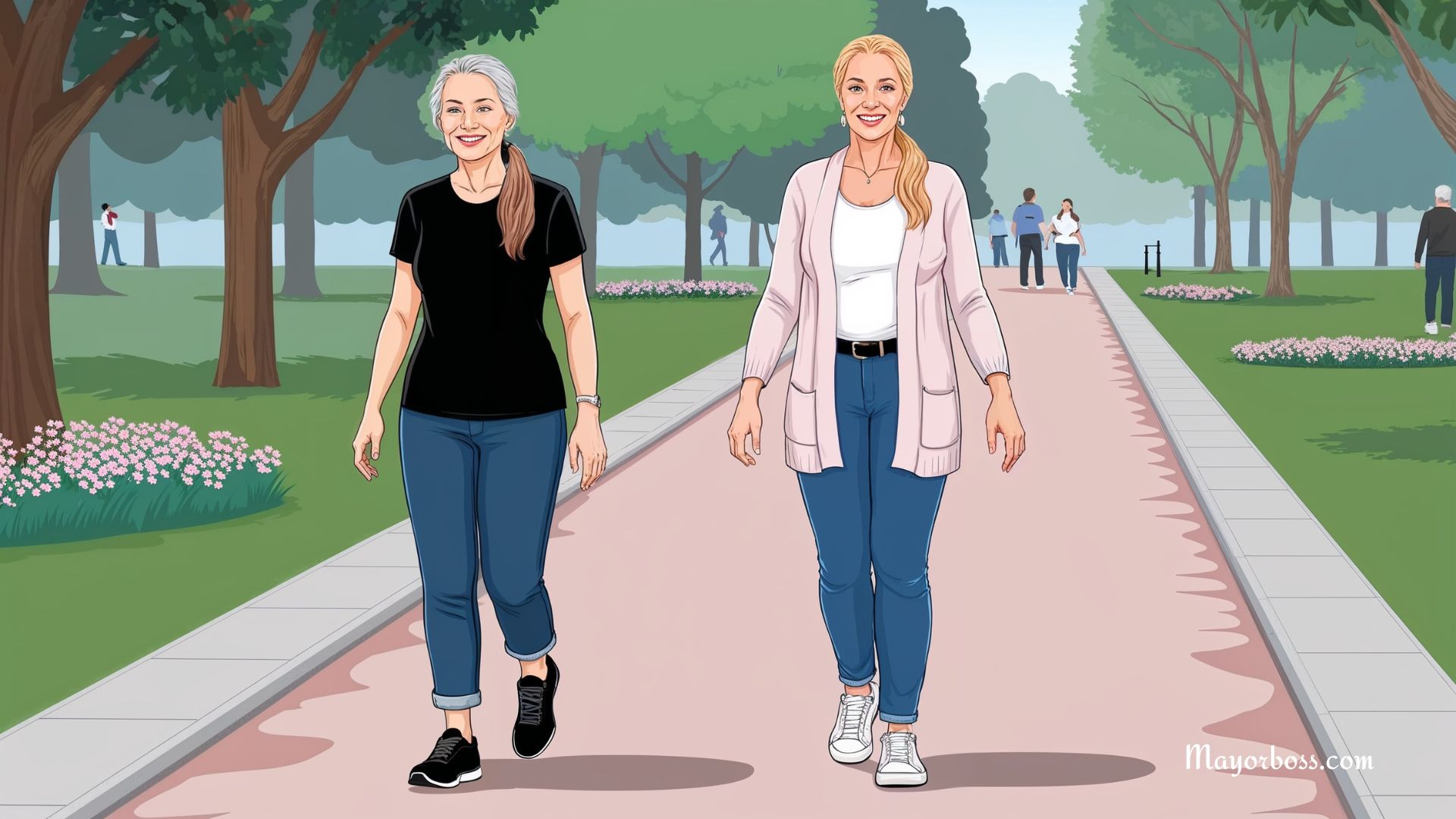This Is Why You Should Go for a Short Walk After Every Meal
Taking a short walk after meals might seem like a simple habit, but it can have significant health benefits for your body. It’s not just about moving around—walking after eating can help improve digestion, stabilize blood sugar, and even boost your energy levels. Keep reading why taking a stroll after meals can be one of the best habits to adopt.

Walking After Meals Helps You Digest Food Better
When you eat, your body works hard to break down the food and absorb nutrients. Walking after a meal can actually help speed up this process. According to Dr. Natalia Hapych, a certified family medicine physician, light physical activity, like walking, increases blood flow to your digestive organs, helping food move more efficiently through your system. This can reduce uncomfortable symptoms like bloating and indigestion.
Walking can also prevent acid reflux. If you’re prone to heartburn, lying down right after eating can make it worse because stomach acid might flow back into your esophagus. But walking keeps you upright, making it easier for your stomach to process the food and reducing the chances of reflux.
A Walk After Eating Helps Control Blood Sugar Levels
One of the most powerful benefits of walking after meals is its ability to control blood sugar levels. After you eat, your blood sugar rises as your body processes the carbohydrates. But, if these levels spike too much, it can lead to problems, especially if you have type 2 diabetes or insulin resistance.
A study published in the journal Diabetologia showed that just a 10-minute walk after eating can help lower blood sugar levels. The light activity helps your muscles use up the glucose (sugar) from the food, preventing it from staying in your bloodstream for too long. This can be especially important for people managing diabetes, but even those without the condition can benefit from keeping their blood sugar in check.
Walking After Meals Can Boost Your Mood and Energy Levels
Ever feel sluggish or tired after a big meal? That’s because your body is using a lot of energy to digest the food. But instead of lounging on the couch, taking a short walk can actually boost your energy levels.
Walking gets your blood flowing, delivers more oxygen to your muscles, and releases endorphins – the “feel-good” hormones. This can help you shake off that post-meal fatigue and make you feel more refreshed. Plus, walking outdoors can give you a mental break, improve your mood, and even reduce stress, according to the American Psychological Association.
A Short Walk Can Help You Manage Your Weight
If you’re trying to manage your weight, going for a short walk after every meal could be a game changer. Walking is a simple, low-impact way to burn extra calories without putting stress on your body. And, when you break it down into smaller chunks, like a 10-minute walk after each meal, it becomes much easier to fit into your day.
According to the CDC, consistent physical activity, even in small doses, can contribute to weight loss and help you maintain a healthy weight over time. The more you move, the more calories you burn, and walking after meals is an easy way to stay active without requiring a lot of effort or planning.
Walking After Eating Supports Heart Health
Your heart will thank you for taking those post-meal walks. Regular physical activity, even something as simple as walking, can help lower your risk of heart disease. The American Heart Association recommends at least 150 minutes of moderate exercise a week, and breaking it up into shorter walks throughout the day is a great way to meet this goal.
Walking after meals can also lower blood pressure and cholesterol levels. As mentioned earlier, walking helps keep blood sugar levels in check, and stable blood sugar is important for heart health, too.
A Walk After Meals Improves Sleep Quality
If you have trouble sleeping, a post-dinner walk might be the perfect solution. Walking helps reduce stress, relaxes your mind, and can help you feel more physically tired, all of which promote better sleep.
But what’s more, walking after eating helps your body digest food faster, which means you’re less likely to go to bed feeling bloated or uncomfortable. As a result, you’ll be more likely to fall asleep quickly and stay asleep through the night.
How Long Should You Walk After Eating?
You don’t need to walk for hours to see the benefits. Research suggests that even a 10-15 minute walk after each meal can make a difference. It’s best to keep the pace light to moderate – you don’t want to exhaust yourself, but you should feel a bit of movement and light effort.
